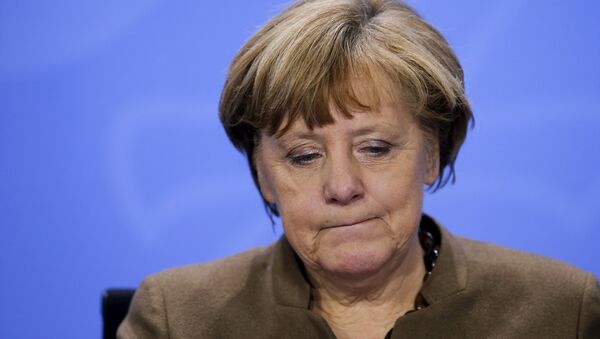Europe's "Iron Lady" has survived many crises since 2005, but now that she is blamed for letting millions of migrants enter the country, German citizens may decide she is no longer the leader they want, journalists Peter Foster and Justin Huggler wrote for The Telegraph.
Germany's economic policies cannot end the wars in the Middle East and cannot force Turkey to do a better job in safeguarding its borders. Germany has also failed to persuade other EU states to take a larger share in accepting refugees.
The upcoming elections, due next month, are said to be a major test for Merkel, her agenda and her government.
"Mrs Merkel's CDU [Christian Democratic Party] does not have to win the state votes on March 13, but if it does not make a respectable showing the party could panic and look to appoint a new leader in time for next year's national elections," the journalists suggested.
They outlined three possible scenarios for the outcome of the election.
The "doomsday" scenario presupposes that if the CDU does poorly in the upcoming elections, Merkel will maintain her refugee policy, but there will be calls within the party for another leader. There is no clear replacement for Merkel, but it has been noted that she herself, when first elected, came "out of nowhere".
"If Mrs Merkel falls, the repercussions will be felt far beyond Germany's borders", the journalists noted. She has been a dominant political force in the region for several years, and there is no guarantee that a different Chancellor will be able to sustain that level of influence.
In a best-case scenario Merkel's party will win and she will have the mandate to continue her policies. Regardless of the projected outcome next month, Merkel would have to work to achieve the same results in the September elections.




